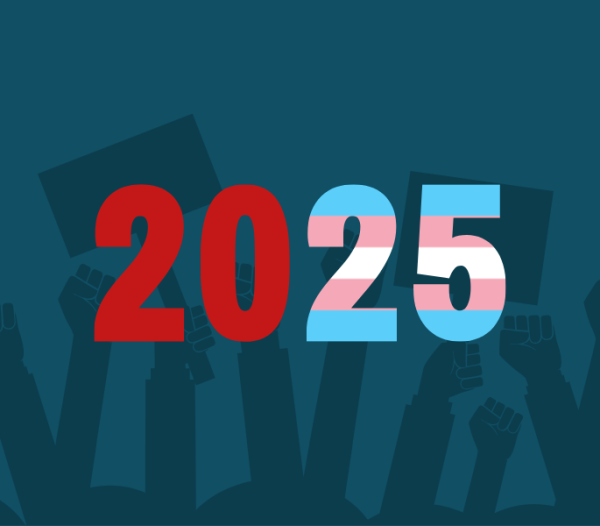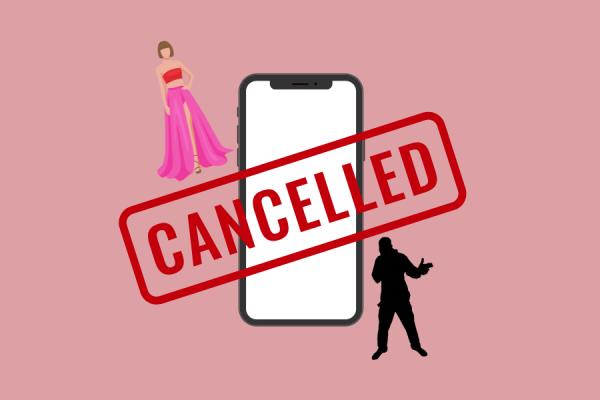Sexual Assault Awareness Month: The Issue with ‘Boys will be Boys’
Brock Turner, a name now loathed by the majority of America. He was a three-time All-American swimmer who enrolled in Stanford University in 2014 on a full swimming scholarship. However, his accomplishments in the pool are not what Turner is known for nationwide. On Jan. 28, 2015, Brock Turner was indicted for five criminal charges: two for rape, which were later dropped, two for felony sexual assault, and one for attempted rape. He pled not guilty to all of the charges.
Despite his insistence of innocence, Brock Turner was eventually found guilty of all charges that had not been dropped. At his sentencing, the Ohio native faced up to 14 years in prison. However, the prosecutors in the case pushed for the defendant’s sentence to be only six years, a punishment most would call lenient, considering the emotional and physical damage Turner had inflicted on his victims. Neither of these sentences was given in the end.
Turner managed to exit the courtroom on the day of his trial with a meager sentence of six months in jail, of which he served only three. Even though Turner was also required to register as a sex offender, something which brings a whole host of problems on its own, this sentencing and early release sparked public outrage that has still not cooled entirely to this day.
To some, this extremely lenient sentencing of a man charged with multiple felonies that have clear, traumatic impact on the victims represents a larger problem in society. Some would claim that Brock Turner is a symbol of the appalling lack of justice given to victims of all forms of sex crimes around the world. This description wouldn’t be too far from the truth.
Sexual assault is an issue only recently being given the attention it deserves. Prior to the 1970s when the National Organization for Women (NOW) established rape crisis centers and brought the issue into the public eye in the United States, rape and sexual assault were topics largely undiscussed. This lack of awareness and oftentimes lenient sentencing of perpetrators caused the lives of many victims of these terrible crimes to be full of isolation and despair. In some cultures, sexual assault is even considered a way of life. South Africa is considered to be the rape capital of the world, and until relatively recently was rape seen as a way of demoralizing or shaming an opposing faction during times of war.
When rape was punished in the past, the perpetrator was usually only considered to have shamed the woman’s family or committed the crime of adultery — two crimes considered far more serious than sexual abuse in most pre-modern cultures. And in some cases, the rape victim is even punished. Fortunately, most Western societies are now coming to grips with the harsh realities that rape and sexual assault bring, especially in the wake of the #MeToo movement that swept across America in late 2017.
However, today there is one lingering aspect of our species’ unfortunate history with sexual violence: the phrase “boys will be boys.” While harmless in its denotation, the connotation of this phrase has recently gained increasingly widespread traction as something that has been used in the past to justify the negative actions of boys and young men. Those who came to Brock Turner’s defense, including his father, indirectly used this shoddy defense as well.
The phrase is usually invoked when a younger male commits an act that is frowned upon, with the saying’s purpose being to claim that this is simply the way boys operate. In the case of sexual assault and rape where this statement has previously been used, this seemingly innocuous phrase becomes a pathetic excuse for a justification.
I am a boy. I am a 17-year-old, white, American boy who grew up in an affluent neighborhood with supportive parents and a close group of friends — just like Brock Turner. Just like many, many other perpetrators of sexual violence whose despicable actions have been defended by the feeble justification of “boys will be boys” and the sentiment surrounding the phrase.
The difference between us, however, is that I understand that sexual assault and rape are not things that boys just do. I recognize the fact that these horrific crimes are the work of boys who lack empathy, impulse control, and respect for others. These are young men who have rarely if ever been told “no” in their lives, men whose reality is distorted into a sick world where they are supreme.
A simple phrase that classifies all boys into one group should never be something used to excuse the actions of twisted, violent young men, nor should it be used to sweep away the failures of parents and guardians who never taught their sons what was right and what was wrong. This pitiful rationale should instead be purged from our society’s vocabulary, at least in cases where there is serious harm done.
The harmful ramifications of the phrase “boys will be boys” impact not only victims who are left without justice for what has happened to them, but people like me as well. Since I am a boy whose situation in life is similar to that of Brock Turner and those like him, I become increasingly aware that some people who are disgruntled by the injustices of cases such as Turner’s might include me in a group I never wanted to be a part of.
From taking one look at me and knowing even just a little bit about my background, some might unconsciously lump me into a group that benefits from “boys will be boys,” a group filled with sex offenders and scum of many kinds. It is these stereotypes that we as a society have been trying to eliminate for decades, and while progress has been made, there is still a long way to go.
In the end, I nor anyone else can ever mandate that people stop using the contemptible, harmful justification of “boys will be boys”, nor should anyone be able to. Free speech is a core pillar of our country that must never fall or crumble, even if the intentions behind limiting certain speech are pure. However, I and many others can implore those who still consider “boys will be boys” an acceptable excuse to reconsider what the statement truly represents. We can put forth the facts and our opinions to naysayers, and we can shine a light on the true consequences of the usage of the phrase.
At the end of the day, however, it is up to those who disagree to choose whether or not they listen. It is their choice to decide whether or not they look deep inside of themselves and grapple with their possibly long-standing beliefs, and it is their choice whether or not they change and stop defending monsters like Brock Turner and what he represents: failure of the justice system and failure of the society in which he was raised.

As a senior at Westwood High School, this will be my second year on Student Press and my first year as World News Editor. Over the course of this year...









